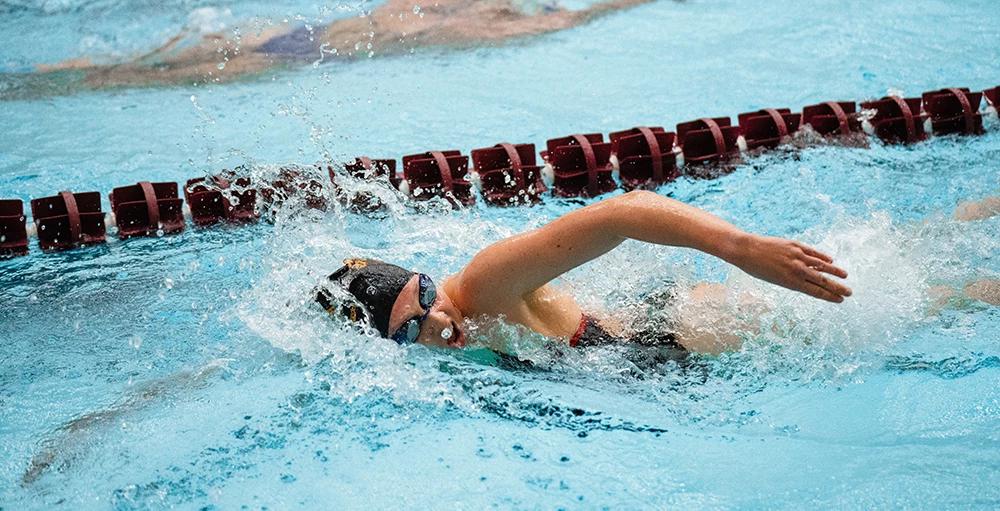Student-athletes face a unique set of financial challenges, especially when it comes to navigating the rules and regulations surrounding their ability to earn money from endorsements and sponsorships.
Statista shows that over 40% of student-athletes1 have taken on debt of more than $20,000, on top of the fact that 38% of college students drop out due to finances. This puts student-athletes in a very tough situation.
The National Collegiate Athletic Association (NCAA) recently passed legislation, ‘The Alston Decision’, allowing college athletes to earn compensation for the use of their name, image, and likeness (NIL).2
This change has created a new set of financial considerations for student-athletes, and it’s important that they know where to look for help.
Schools must play a crucial role in helping student-athletes understand and manage these financial details, both for student success and for the integrity of the athletic program itself.
From offering financial literacy courses to providing advice from legal and business professionals, there are several ways schools can help achieve student success in navigating the NIL regulations.
Education
One of the most important steps schools can take is to provide educational resources to student-athletes.
Most schools already have financial literacy programs for all students, but for student-athletes, it is important to offer additional information about NIL regulations and how student-athletes can use them to their advantage.
These educational resources should include information about the types of NIL deals available, the rules and regulations, and ways for student-athletes to monetize their NIL rights.
It could also involve offering workshops or seminars on topics such as budgeting, financial planning, the importance of a good credit score, and understanding contracts.
Support
Another way that schools can support student-athletes is by providing access to financial advisors or other professionals who can help them make informed decisions about their NIL opportunities. This could include assistance with negotiating contracts, choosing endorsement deals, and managing their earnings.
These professionals can help student-athletes create a financial plan that takes into account their NIL earnings, as well as any other income sources they may have.
Financial advisors can also help student-athletes understand the potential long-term impacts of their financial decisions, such as the potential impact on their credit score or future financial stability.
Schools could also offer support with online programs and tax planning. NIL income is subject to federal and state taxes, and student-athletes may need assistance in understanding how to properly report and pay these taxes. Schools can provide access to tax professionals or offer guidance on tax-saving strategies.
Policies and Procedures
In addition to providing education and resources, schools can also create policies and procedures to help student-athletes improve their financial literacy and navigate the financial details of NIL responsibly and ethically.
For example, a school might require student-athletes to report any NIL income and to seek approval before entering into any endorsement agreements. This can help ensure that student-athletes are not inadvertently violating NCAA rules or engaging in activities that could compromise the integrity of the athletic program.
Advocating
Finally, schools can support student-athletes by advocating on their behalf. The NIL landscape is still evolving, and there may be challenges or opportunities that arise that require the support of the school.
By advocating on behalf of their student-athletes, schools can help ensure that they can fully capitalize on their NIL opportunities while also protecting their financial wellness.
This might look like the school helping in such things as negotiations with sponsors or discussions with governing bodies like the NCAA.
For example, if a student-athlete is approached by a company to endorse a product, the school may be able to provide guidance on what fair compensation for the endorsement would be. The school may also be able to negotiate on behalf of the student-athlete to ensure that they are fairly compensated for their endorsement.
As the NIL landscape evolves, there may be debates or discussions about the rules and regulations surrounding NIL compensation. In these situations, the school may be able to represent the interests of its student-athletes and advocate for policies that protect their financial wellness.
Why It Matters
Although it might not seem like a burning problem, there are a few major reasons why this is a very important issue for schools to consider.
First and foremost, NIL income can be a significant source of financial support for student-athletes. Many college athletes, particularly those at the Division I level, devote a significant amount of time and energy to their sport, making it difficult to hold a part-time job or pursue other income-generating opportunities.
However, NIL income also comes with financial responsibilities and potential risks.
Student-athletes may be approached by companies or individuals offering endorsement deals or other opportunities. These students may not have the financial knowledge or experience to determine whether these offers are fair or reasonable.
By providing financial education and support, schools can help student-athletes make informed decisions about their NIL opportunities and protect their financial wellness.
The income, tax, and scholarship implications are also very important. Many student-athletes rely on scholarships to get them through schooling. However, some of these scholarships take into consideration their total family income, and additional NIL income could push them over the limit.3
Additionally, helping student-athletes navigate the financial details of NIL is important because it can have long-term implications for their financial stability.
The decisions that student-athletes make about their NIL income can impact their credit score, their ability to save and invest, and their overall financial wellness after they graduate from college.
By providing guidance and support, schools can help student-athletes make smart financial decisions that will benefit them in the long run.
1 - https://www.statista.com/statistics/1130678/debt-ncaa-student-athletes/
2 - https://www.ncaa.org/sports/2021/2/8/about-taking-action.aspx
3 - https://sports.yahoo.com/ncaa-athlete-pay-confounds-fafsa-095523960.html?guccounter=1&guce_referrer=aHR0cHM6Ly93d3cuYXRobGV0aWNidXNpbmVzcy5jb20v&guce_referrer_sig=AQAAAL-HeD1zF1-zIR214Cxp4w9MoS7pwem9Cx_lSdPmJdgC3CQRnLR2XB0A0XRtub4LrEbOisz6b5a_dLQAXoVAF3w7zp-tfxMlc2Gcr5-EpdCNMr0XSSwWepIYMQ05c4NumiX7izGLJ-rD7Wo-VddYeI737IWRH0gOygV6k_IlRVFA








